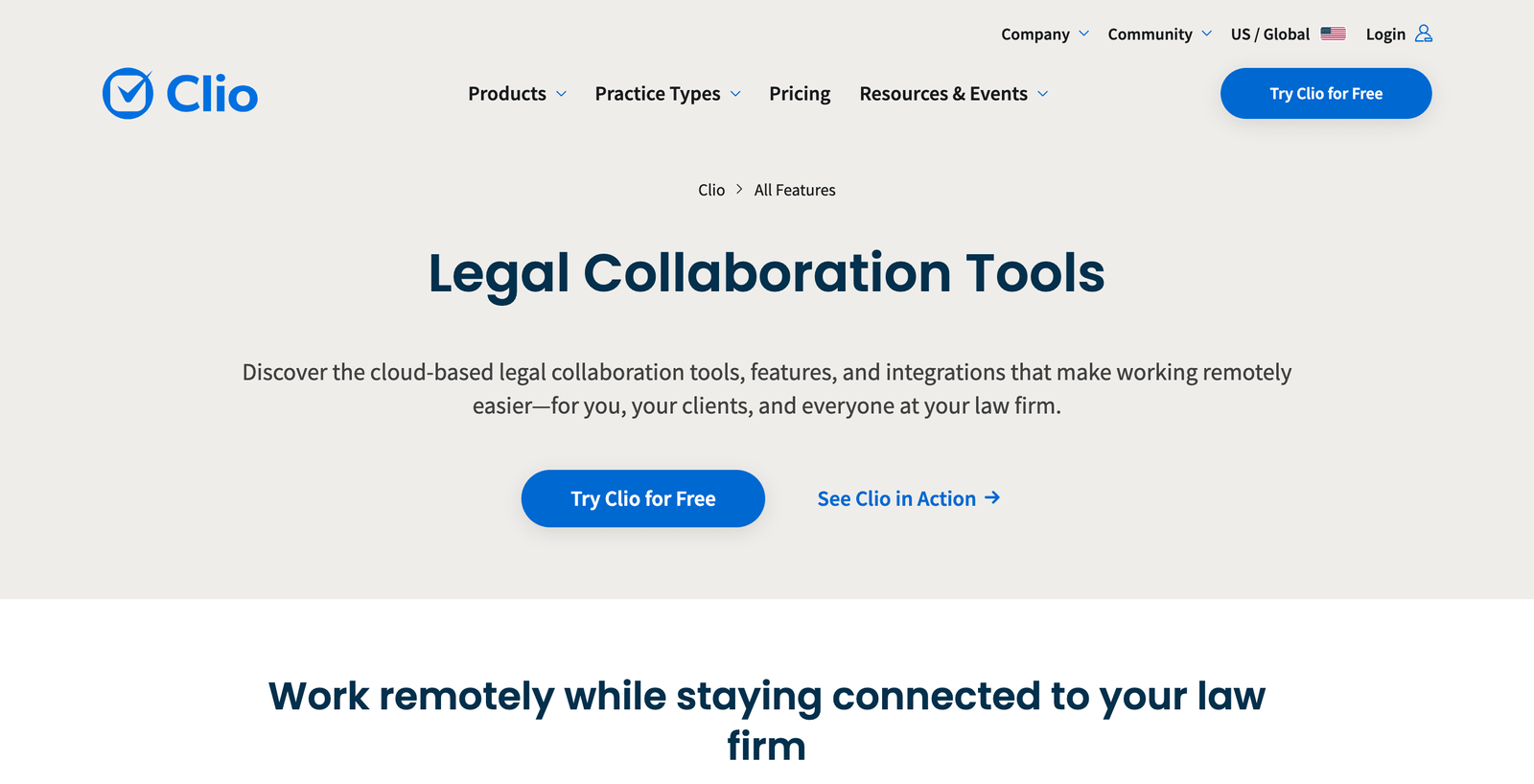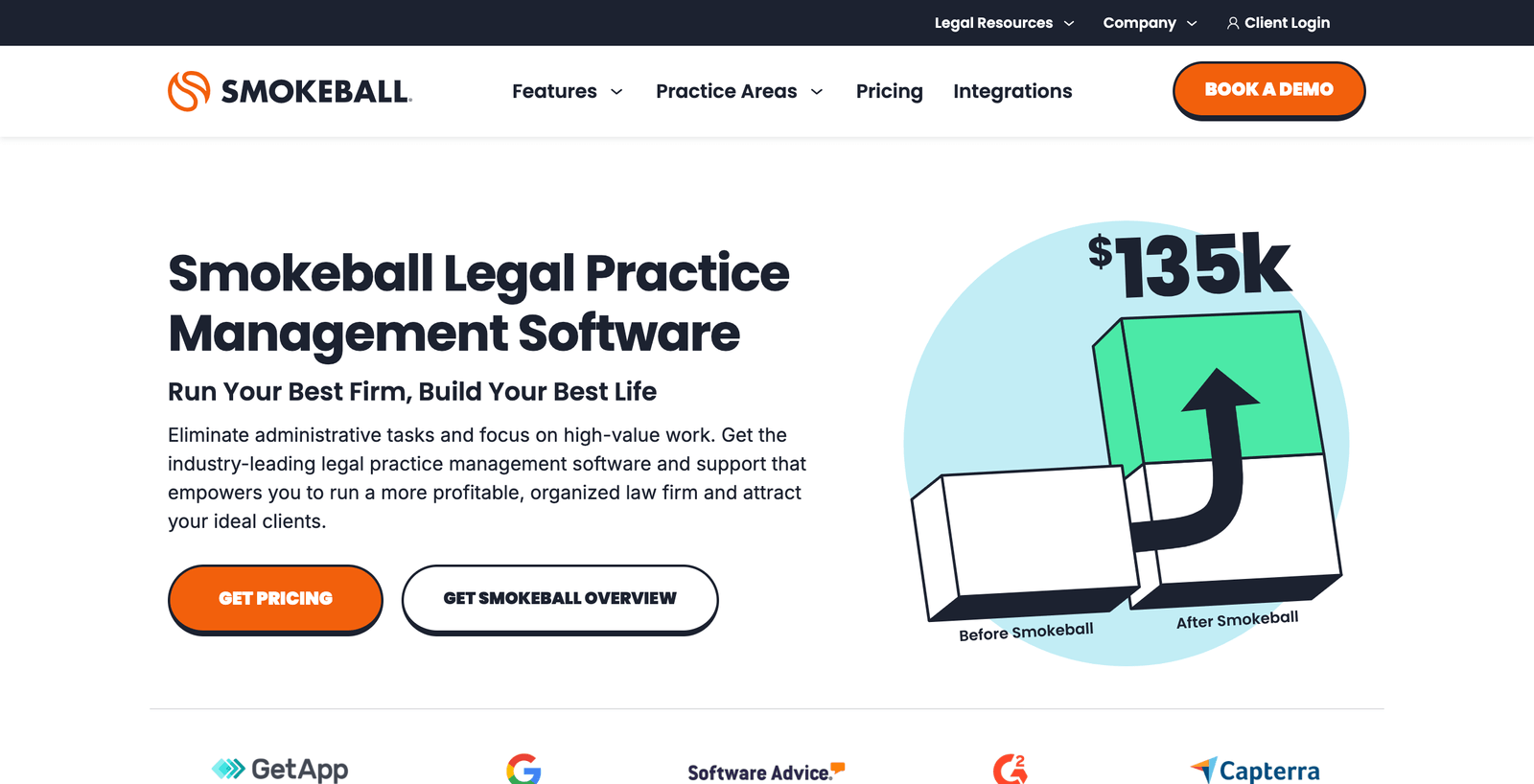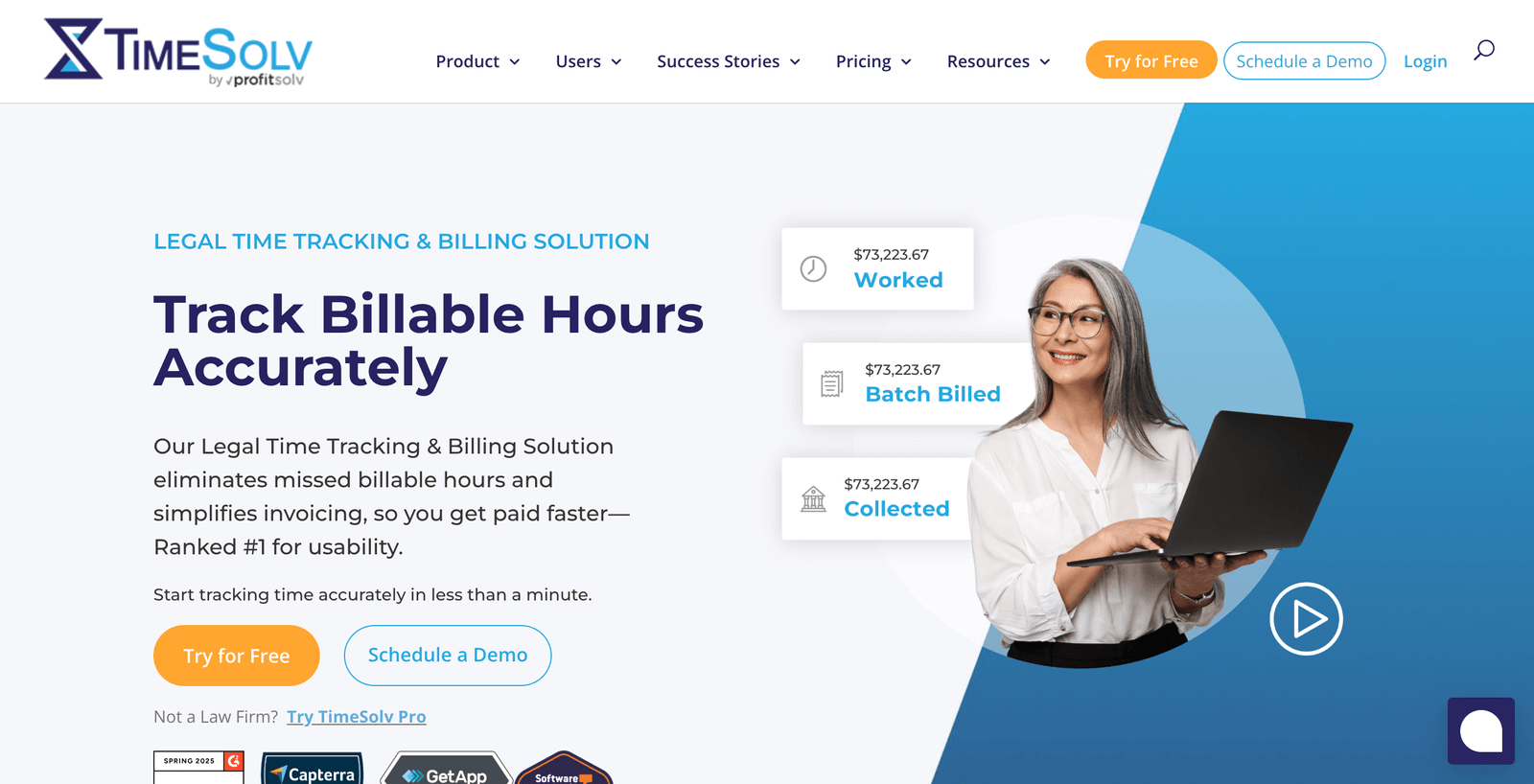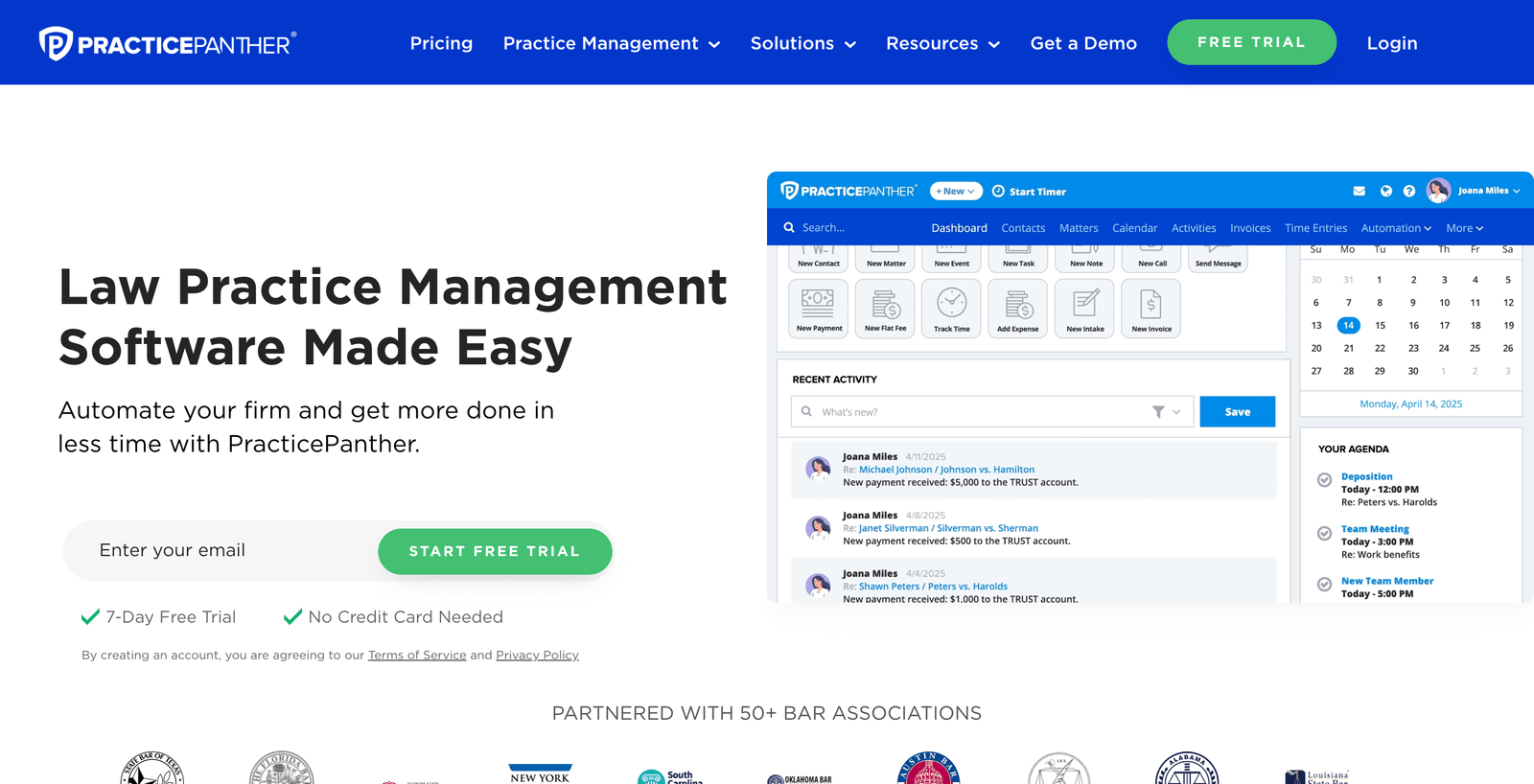If you’re a lawyer, you probably lose time every week, time you worked but forgot to bill. It adds up. A missed six minutes here, 12 minutes there. At the end of the month, that’s real money.
Time tracking software for attorneys fixes that. These tools track what you worked on, how long you spent, and whether it’s billable. Then they help you turn those logs into invoices that clients can understand and pay.
The good ones also make billing easier, keep you compliant with ABA rules, and save you from chasing details at the end of every month.
Why time tracking matters in legal work
![]()
Lawyers bill for time. If the time isn’t tracked, it can’t be billed. And if it’s billed incorrectly, it can create disputes, or worse, ethics violations.
The ABA’s 2022 report on law practice metrics says most lawyers underbill by 10 to 30%. That’s often because they try to remember their day after it happens. That doesn’t work.
Legal time tracking tools record time as you go. Some track it in the background. Some require you to start a timer. Either way, you get an accurate log, by client, by matter, down to the minute.
This helps with:
- Hourly billing
- Flat-fee billing (to track effort and value)
- Insurance billing (using LEDES or UTBMS codes)
- Time audits for disputes or internal reviews
- Client transparency
Even if you don’t bill hourly, tracking time helps you understand profitability and workload.
What legal time tracking tools do
Most legal time trackers include:
- Manual and automatic timers
- Custom hourly rates per client or matter
- Time entry tagging (billable, non-billable, flat rate)
- Notes and descriptions for each entry
- Conversion of time logs into invoices
- LEDES invoice support (for corporate and insurance billing)
- Integration with legal practice tools and calendars
- Reporting on time by case, staff, or task
They work on desktop, mobile, and sometimes offline. Most cloud tools also sync with Outlook or Google Calendar to log meetings and calls automatically.
The best time tracking tools for attorneys in 2025
Here’s a closer look at the top options this year, tools that are purpose-built (or well-suited) for legal professionals.
Clio

Clio is a full legal practice management system that includes robust time tracking. You can start a timer from any screen, while writing an email, editing a document, or reviewing a calendar.
Why it works
Clio links your time directly to the case and client. You can turn any calendar event or task into a time entry. You can also track non-billable time for internal purposes. Everything feeds into billing and reporting.
Features
- Timer on desktop, mobile, or browser
- Add time from calendar or email
- LEDES and UTBMS billing support
- Works with Google, Outlook, Zoom, and QuickBooks
Best for
Firms that already use Clio Manage for case management.
Price
Starts at $49/user/month
Smokeball

Smokeball tracks your time automatically, without you starting a timer. It records how long you spend in Word, Outlook, or other tools, and builds a time log in the background.
Why it works
This is ideal for busy attorneys who forget to click “start” on a timer. If you write a motion, reply to 12 emails, then take a call, Smokeball captures it all and logs the time against the right matter.
Features
- Passive time tracking
- Case-specific activity logs
- Time-based or flat-fee billing
- Strong document automation and form libraries
Best for
Firms with a high volume of paperwork or flat-fee models.
Price
Custom pricing (get a quote)
TimeSolv

TimeSolv is designed specifically for lawyers, with a focus on billing accuracy and compliance. It supports LEDES codes, UTBMS task categories, and multiple invoice templates.
Why it works
If you bill corporate clients or insurance companies, TimeSolv helps format your invoices correctly. It also tracks your time from multiple devices and lets you approve time entries before billing.
Features
- Multiple timers and time entry modes
- Works offline and online
- Trust accounting
- Pre-bill review and batch invoice generation
Best for
Law firms with strict billing format or compliance needs.
Price
Starts at $55/user/month
PracticePanther

PracticePanther adds timers into almost every part of your workflow, messages, documents, tasks, calls. You can start a timer manually or use its built-in automation to trigger time entries from your actions.
Why it works
It keeps time tracking simple and centralized. You can see all your tracked time on one screen, and filter by client, staff, or billable status. Built-in billing tools speed up invoicing.
Features
- Timer built into tasks and files
- Recurring billing, invoice reminders
- Trust account tracking
- Syncs with QuickBooks and Xero
Best for
Firms that want time tracking plus billing in one tool.
Price
Starts at $49/user/month
Toggl Track

Toggl isn’t built for law specifically, but it’s popular with solo attorneys. It’s a lightweight, easy-to-use time tracker that works on every platform.
Why it works
If you don’t need complex billing codes or legal invoicing, Toggl gets the job done. You can label time entries, add notes, and export clean reports.
Features
- One-click timer
- Browser, mobile, and desktop apps
- Chrome extension for Gmail
- Tag time entries by project or matter
Best for
Solo attorneys who want a fast, clean tracker.
Price
Free plan available; paid plans from $0/user/month
Comparison chart
| Tool | Best For | Passive Tracking | Legal Billing Codes | Starting Price |
|---|---|---|---|---|
| Clio | Firms of all sizes | No | Yes | $39/mo |
| Smokeball | Docs + flat-fee firms | Yes | No | Custom |
| TimeSolv | Compliance-heavy billing | No | Yes | $24.95/mo |
| PracticePanther | All-in-one users | No | Yes | $49/mo |
| Toggl Track | Solo attorneys | No | No | Free/$10/mo |
What to look for
Passive vs. manual tracking
![]()
Do you want the software to track your activity on its own, or do you prefer to start/stop timers? If you forget to log time, passive tools like Smokeball might work better.
Case and client tracking
Does the tool let you link time entries to specific clients and matters? If it doesn’t, it’s not built for law.
Legal billing support
LEDES and UTBMS codes are required by many insurance and corporate clients. Not all tools support this. TimeSolv and Clio do.
Billing and invoicing
Some tools only track time. Others help you send invoices and manage payments. If you want one system, look for a tool that includes both time and billing.
Integrations
Most tools connect to Google or Outlook. Some integrate with accounting platforms like QuickBooks, or document tools like Dropbox. Make sure your time entries don’t live in a silo.
Cloud vs on-premise software
In 2025, almost all major time tracking tools are cloud-based. But a few still support desktop installations.
| Option | Pros | Cons |
|---|---|---|
| Cloud | Accessible from anywhere, auto updates | Needs internet |
| Desktop | May run faster, no internet needed | Less flexibility |
Cloud tools like Clio and PracticePanther are the default now for most firms.
Billing ethics and compliance
The ABA Model Rules require lawyers to bill fairly and accurately. Rule 1.5 makes this clear. Your software needs to support that.
Time tracking tools help avoid billing disputes by showing detailed logs. They also help prove the value of flat-fee or contingency work, even when you’re not billing hourly.
And if you’re ever audited, a good log protects your firm.
What to ask before you choose
- Does this tool track time automatically or manually?
- Can it handle both hourly and flat-rate billing?
- Does it support LEDES/UTBMS formats?
- Can I use it on my phone, laptop, and browser?
- How easy is invoicing?
- Will it sync with Outlook or Google Calendar?
- What kind of reports does it generate?
- Is there a free trial?
Try tools out before you commit. Most offer at least a week of testing.
You can’t bill what you don’t track. Manual logs don’t cut it anymore. Whether you want a simple timer or a full legal platform, these tools help you get paid for the time you already work.
The best time tracker is the one that fits into your daily routine and works quietly in the background. Try a few. Ask your team what sticks. Then stop guessing and start billing with confidence.

